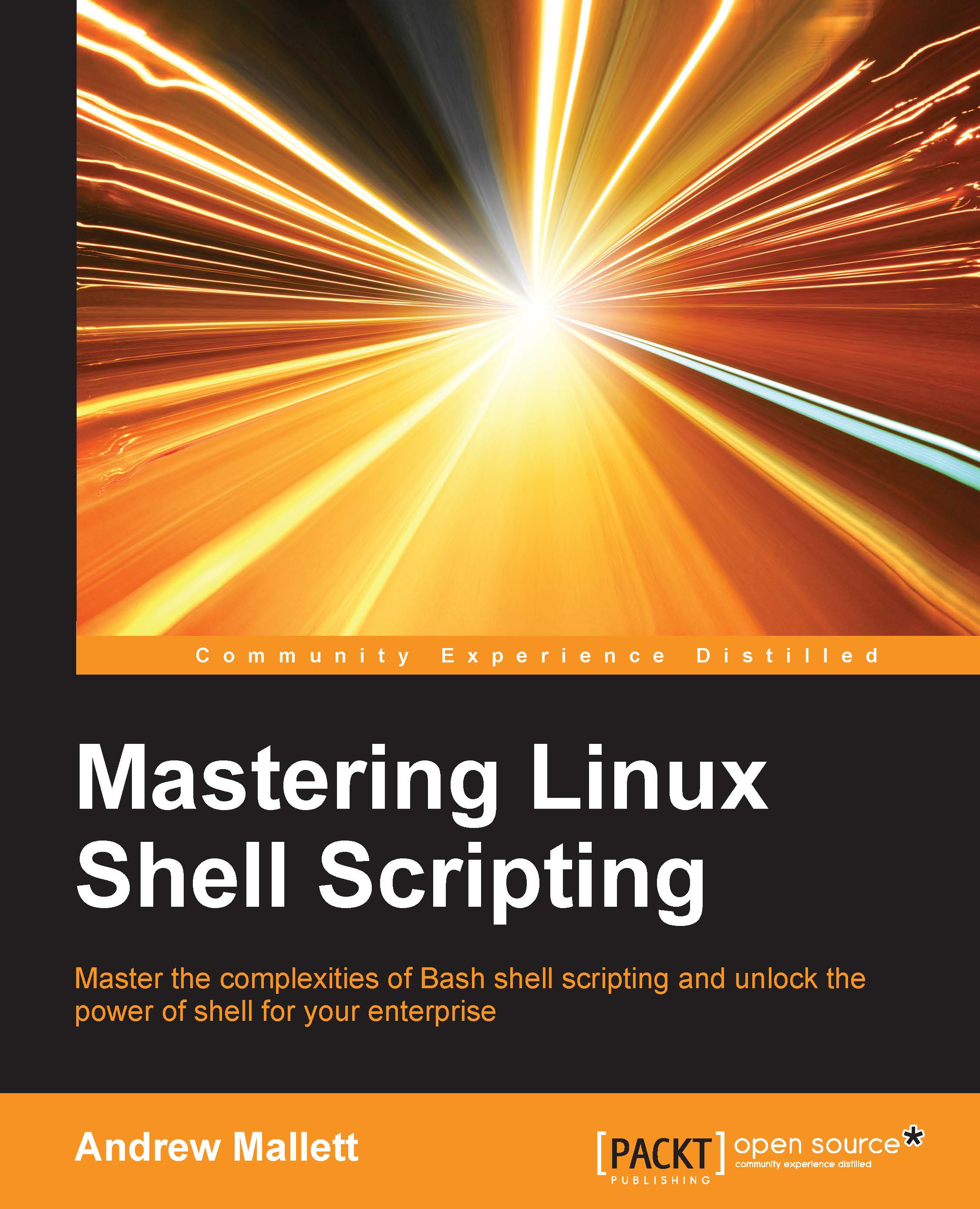Displaying data from web logs
We have already had a preview of how we can use awk to view the logs files from the Apache web server; however, we will now move onto our demonstration file that has a greater and more varied content.
Selecting entries by date
Having seen how we can display the date, we should perhaps look at how we print entries from just one day. To do this, we can use the match operator in awk. This is denoted by the tilde or squiggly line, if you prefer. As we only need the date element, there is no need for us to use both the date and time-zone field. The following command shows how to print entries from 10th September 2014:
$ awk ' ( $4 ~ /10\/Sep\/2014/ ) ' access.log
For completeness, this command and partial output is shown in the following screenshot:

The round brackets or parentheses embrace the range of lines that we are looking for and we have omitted the main block, which ensures that we print the complete matching lines from the range. There is nothing stopping us...
























































